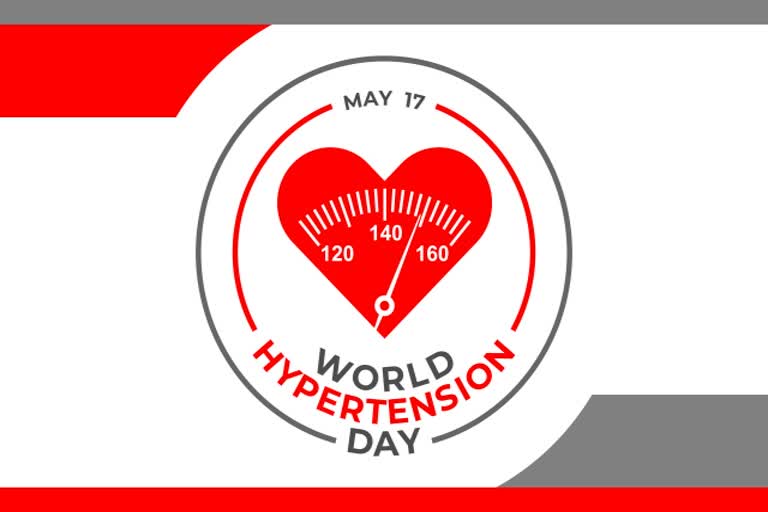Hypertension or High Blood Pressure (BP) becomes a major health issue as one ages and can even lead to other complex conditions such as strokes, heart attacks, and even kidney diseases. Although most people across the globe are familiar with the word “Hypertension”, they are not entirely aware of the situation or know the accurate way to measure it.
Therefore, to create awareness about the same, every year on 17th May, the World Hypertension League (WHL) organizes World Hypertension Day. The theme this year is “Measure Your Blood Pressure Accurately, Control It, Live Longer”.
According to the World Health Organisation (WHO) statistics (2019), an estimated 1.13 billion people worldwide have hypertension, most (two-thirds) living in low- and middle-income countries. In 2015, 1 in 4 men and 1 in 5 women had hypertension.
Since this condition has no warning signs or symptoms, people are usually unaware they may have this condition, which is why it is also known as the “silent killer”. Therefore, regular monitoring of blood pressure is advised.
What Is Hypertension?
“Blood pressure is the force exerted by circulating blood against the walls of the body’s arteries, the major blood vessels in the body. Hypertension is when blood pressure is too high”, explains WHO.
There are devices available to measure blood pressure, that will give you two readings. One is Systolic “the pressure in blood vessels when the heart contracts or beats” and the other is Diastolic “the pressure in the vessels when the heart rests between beats”.
Furthermore, the WHO states that Hypertension is diagnosed if, when measured twice on different days, systolic blood pressure on both readings is ≥140 mmHg and/or diastolic blood pressure on both readings is ≥90 mmHg. Once you have been diagnosed, you may consult your doctor to know what medication or treatment is required.
How To Deal With High BP?
Our expert Dr. Rajesh Vukkala, MD (General Medicine), Consultant Physician at VINN Hospital, Hyderabad explains some of the ways through which we can combat the problem of high blood pressure.
- Routine: Follow a proper routine. Wake up and sleep on time, have your meals at fixed times, work out and have a healthy lifestyle.
- No Caffeine: Cut out on your caffeine intake. Try to avoid it as much as you can. Caffeine can raise your Blood Pressure, however, it may vary from person to person, how their bodies react to its intake.
- No Junk: Stay away from eating junk food since it is loaded with sugar, calories, and refined carbs, which is associated with issues related to high blood pressure. A home-cooked, healthy meal is usually recommended.
- Exercise: Meditation, Yoga, and walking are the exercises recommended by Dr. Rajesh. Meditation is highly known to calm and relax your mind to deal with stress. Apart from that, exercising is the best way to alleviate your Blood Pressure as well as maintain heart health.
- Healthy Weight: Maintain your Body Mass Index (BMI), which should be ideally 23 (+ or - 1). Being overweight can affect your heart health. Therefore, maintain a healthy weight.
- Less Sodium: Cut down your sodium intake, especially in foods where it may not be required like salads, fruits, etc. Too much salt can affect your blood pressure levels.
- No Smoking/Drinking: Limit your alcohol consumption or try to completely avoid it. Also, quit smoking.
Dr. Vukkala says, “People in the last three decades have been exposed to high levels of stress. The problem of blood pressure is something that you usually look for in a person after the age of 50 years, but today, there are more young people suffering from it and the main reason being stress. Therefore, one must know how to manage stress and not let it affect their health.”
Tips While Monitoring Blood Pressure
Here are some tips to measure your blood pressure accurately:
- Do not conversate while the device is measuring your BP
- Support your arm with a cushion or pillow or rest your arm on a table in a way that it is at the level of your heart
- Put the cuff around your bare arm and not over your clothes and use the cuff of the right size
- Sit on a chair with your back supported and feet resting on the floor.
- Do not keep your legs crossed.
- Have an empty bladder before measuring BP.
- Do not measure BP immediately after doing some activity. Rest your body for 10mins and then measure it.
COVID-19 and Hypertension
Talk to your doctor if you are feeling uneasy and your BP readings are not normal. Especially currently during the times of the COVID-19 pandemic, people with hypertension need to be extra cautious. Since hypertension is considered to be comorbidity, people with this condition are considered to be at a higher risk of severe infection of COVID-19. WHL recommends the following things to keep in mind:
- Continue taking your blood pressure medications as prescribed.
- If possible, measure your blood pressure at home. It might become somewhat lower or higher than usual, but if possible do not change your treatment without first talking to your doctor or clinic. Remember: low blood pressure can result from poor hydration.
- Keep hydrated. Many people, particularly older adults, do not consume adequate fluids. Make up a schedule to ensure that throughout the day you drink fluids on a regular basis.
- Physical activity: Because many of us will spend more time at home to minimize exposure to the virus, it is likely we will also reduce physical activity. One solution: going for walks outside the home, provided the social distance is maintained, is a healthy and even morale-boosting activity during difficult times



